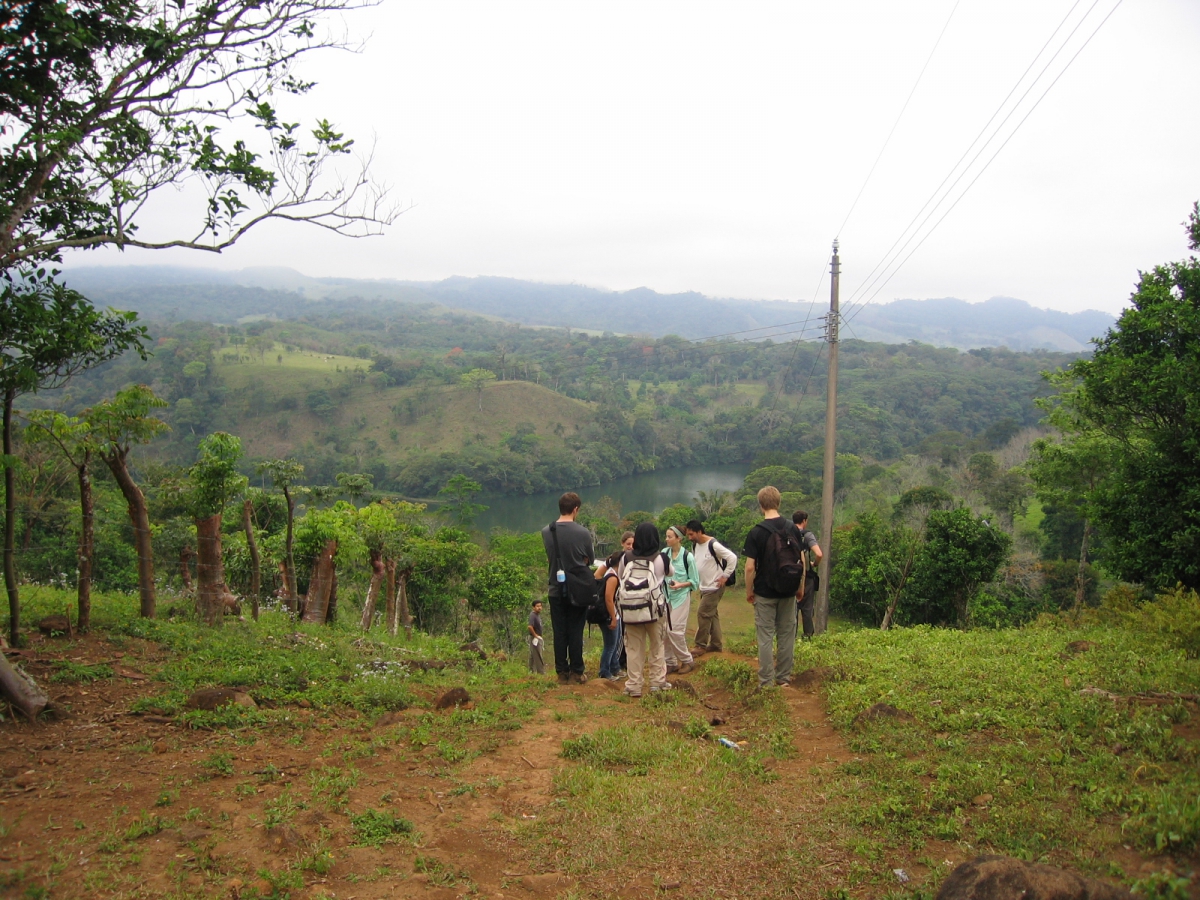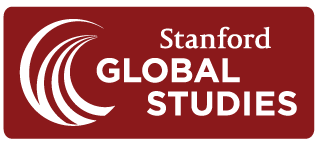Teacher Institute Abroad: Mexico 2016
 Ecology & Sustainability:
Ecology & Sustainability:
Experiences with Mexico's Biocultural Diversity
Professional development institute for secondary and community college STEM and Social Science educators
Location: Veracruz, Mexico: Los Tuxtlas Tropical Research Station (Instituto de Biología, UNAM) and Instituto de Ecología, A.C., Xalapa
Application deadline: January 18, 2016
Online application form: https://stanforduniversity.qualtrics.com/SE/?SID=SV_7WIN06Jg8feYEM5
Program Overview
During this 10-day summer course, teachers will go into the field in Mexico with the Center for Latin American Studies! Participants will work with scientists on research projects focusing on ecology, sustainability, and conservation science at Los Tuxtlas Tropical Biology Station in Veracruz, Mexico. Teachers will have the opportunity to work with science educators from the Graduate School of Education's Center to Support Excellence in Teaching (CSET) to develop unit plans, lessons, or units for use in their classrooms. Throughout the following year, teachers will reconnect to present classroom outcomes of their projects at follow-up coaching sessions with CSET science educators. These sessions will take place at Stanford University and Jasper Ridge Biological Preserve, with teachers outside the Bay Area connecting remotely.
Activities
Participate in ecology, sustainability, and conservation science research (learning by doing) at Los Tuxtlas Tropical Biology Station
Attend lectures and visits on resource management and sustainability at the Instituto de Ecología in Xalapa
Visit an indigenous community to learn about conservation efforts of tropical rainforest ecosystems via rural ecotourism
Engage in environmental education at Stanford University’s Jasper Ridge Biological Preserve
Attend tailored pedagogy sessions while in Mexico with the Stanford Graduate School of Education’s Center to Support Excellence in Teaching (CSET)
Receive follow-up coaching sessions throughout the academic year with CSET
Institute Leads
Faculty Instructor
 Rodolfo Dirzo, Bing Professor in Environmental Science in the Department of Biology, Director of the Center for Latin American Studies
Rodolfo Dirzo, Bing Professor in Environmental Science in the Department of Biology, Director of the Center for Latin American Studies
Professor Dirzo teaches ecology courses and leads the Dirzo Lab in the Department of Biology. He holds masters and doctoral degrees in ecology from the University of Wales (UK), and a B.S. in biology from the Universidad de Morelos. His field work focuses on tropical forest ecosystems of Mexico, Costa Rica, Amazonia, and, more recently, Africa (Kenya and Tanzania), looking at the relationships between defaunation (loss of megafauna) in savannah ecosystems and the risks of disease for local human communities. He is interested in the extinction of biological diversity, ecological processes, and cultural diversity. He has deep interests in the traditional knowledge of forest peoples such as the Popoluca in Los Tuxtlas region, the Maya in the Yucatan, and several ethnic groups in Oaxaca, Mexico. He is passionate about environmental education at all levels and he is engaged in bringing science education to under-served children in the Bay Area, California.
CSET Instructors
 Janet Carlson, Director
Janet Carlson, Director
Tammy Moriarty, Professional Development Associate and Instructional Science Coach
Sharon Parker, Professional Development Associate and Instructional Science Coach
The faculty and staff of CSET design and develop professional-development programs grounded in research that connects teaching to student learning. Dr. Carlson's research interests include the impact of educative curriculum materials and transformative professional development on science teaching and learning. She began her career as a middle and high school science teacher and has spent the last 20 years working in science education developing curriculum, leading professional development, and conducting research. Ms. Moriarty and Ms. Parker conduct professional development with high school teachers for CSET's Hollyhock Fellowship program and provide online coaching and support to Hollyhock Fellows throughout the school year. Ms. Moriarty's experience includes being a secondary science teacher, a district science resource teacher, and school administrator. Ms. Parker’s 24 years of experience includes being an instructional science coach for a charter management organization, co-founder of a middle/high school and community science center in the Bay Area, and teaching high-needs students in the Bay Area.
Institute Coordinator
 Molly Aufdermauer, Public Engagement Coordinator
Molly Aufdermauer, Public Engagement Coordinator
Ms. Aufdermauer coordinates the development, implementation, and reporting of CLAS’ Title VI National Resource Center K-12 and community college outreach activities, focusing on professional development opportunities for teachers. Prior to her role at CLAS, Ms. Aufdermauer served in student affairs at the Stanford School of Medicine and taught English as a Second Language adult classes.
Program Cost: $2000*
Included in program cost:
Room and board (shared room) in Mexico
Ground transportation in Mexico
Educational materials
Follow-up coaching sessions
Not included in program cost:
International airfare
Incidental costs such as passport fees, travel medical insurance (ITIC), immunizations**, etc.
* Subsidized price as a result of U.S. Department of Education Title VI National Resource Center grant funding
** Participants are responsible for ensuring they have the appropriate immunizations for the destination
APPLICANT SELECTION CRITERIA
STEM or social science secondary, community college, or pre-service educator
Able to contribute to the group experience in regards to interpersonal and group-living skills
Committed to sharing the institute experience and information with colleagues across district and state
Committed to being a willing and respectful participant in institute activities and projects
Committed to the timely completion of required projects and participation in follow-up coaching
Basic Spanish speaking skills useful but not required
Applications will be reviewed by the Center for Latin American Studies.
All qualified applicants will be considered in accordance with Stanford University's Nondiscrimination Policy.
Application Process
Primary application due January 18
Electronic application form (includes the following components)
Applicant profile information
Resume (upload)
A 300-500 word statement of interest (type in electronic form or upload)
Applicant: The statement of interest should address why you are interested in the program, what makes you a good candidate, and how you plan to synthesize the knowledge and experience gained from this institute to maximize the benefits to your classroom, school, and district.
Letter of reference (cover form and letter to be submitted by mail or email)
Letter of reference should be written by a person in the position to evaluate the applicant, such as a principal, chair, advisor, or supervisor.
Supplemental materials due February 5 upon acceptance to program
Copy of passport or confirmation that passport application has been submitted (submitted electronically)
Signed Materials Release (submitted electronically)
Signed International Travel Waiver (submitted electronically)
Proof of international insurance: International Teacher Identity Card (submitted electronically)
A $350 deposit (check made payable to Stanford University, postmarked by February 5)
Program cost balance (check made payable to Stanford University) due March 4
Submit supplemental materials and checks to
Molly Aufdermauer
Public Engagement Coordinator
Center for Latin American Studies
582 Alvarado Row
Stanford, CA 94305-8545
email: mollyauf@stanford.edu
Applicant is responsible for confirming receipt of all application materials.
PROGRAM CONTACT
Molly Aufdermauer
Public Engagement Coordinator
Center for Latin American Studies
email: mollyauf@stanford.edu
tel: 650-721-5530


